The Hungarian economy would immediately feel the consequences if forced to give up Russian oil.“The change would bring higher inflation, less shopping activity from Hungarians, along with decreased economic competitiveness because, without Russian oil, manufacturing would become much more expensive,” stated the head of the Századvég Foundation’s macroeconomic business boom cycle research department. Speaking with the economic daily, Világgazdaság, Gábor Regős believes that the main issue is not how much fuel costs or utility cuts will be, but rather whether there be enough energy to ensure continuous operation of the economy and within that, the manufacturing industry.
Brussels’ oil embargo plans would hurt Hungarian society
Double-digit domestic inflation, unsustainable price caps, 800 HUF fuel prices, transportation halted, petrol shortages, declining household consumption, plummeting forint, an overall downturning economy – these are the consequences expert opinions foresee if Hungary is forced to suddenly give up Russian oil. It seems however that Brussels is not really interested in these predictions as President Ursula von der Leyen of the European Commission announced on Wednesday morning that they would bid farewell to Russian oil later this year. According to press reports, Hungary, along with Slovakia, would get some extra time. The question is what that would be enough for.

In the case of immediate sanctions, price caps would become unfeasible causing even further inflation not only for oil but also on the refined products market– the chief analyst of Magyar Bankholding toldVilággazdaság. Gergely Suppan believes that temporary fuel shortages could emerge causing most transportation to come to a halt, bringing into question how people would get to work or deliver goods. Not to mention rising prices; despite Hungary putting a cap on fuel at 480 HUF in November, banning Russian oil would immediately push that to 700-800 HUF.This would surely blow inflation up to double-digit price jumps –far more than the current rates around nine-ten percent. The Hungarian forint would not be able to hold its rate in this economic environment and so our currency would start to plummet.
The Bankkholding expert explained that it would also cause enormous economic damage if transports were transferred from the pipeline, which barely impacts the environment, to extremely pollutant maritime-transport.
Apparently, the arrivals from the Adriatic pipeline coming from Omisalj could be replaced, but maritime transport is much more damaging to the environment– said Gergely Suppan.
It seems however that Brussels is not really interested in economic or environmental consequences. Ursula von der Leyen, president of the European Commission, announced in a press conference on Wednesday morning that the sixth sanctions package includes banning Russian oil imports within six months – despite the fact that this would cause enormous problems for several EU countries.Von der Leyen herself recognized that this would not be easy but emphasized that the roots must be cut off.The Commission president did not mention Hungary or Slovakia yet both countries would lose the most with this embargo; according to press reports, Hungary and Slovakia have been granted extra time until the end of 2023.
További IN ENGLISH híreink
The question is whether this amount of time is enough for anything at all. Hungary is heavily dependent on Russian gas and 60 percent of crude oil comes from Russia through the Friendship pipeline.Mol’s refineries in Százhalombatta and Bratislava are exclusively specialized for processing Uralic (ie Russian) crude oil; transitioning to accommodate another type of oil would be an expensive and time-consuming process.Zsolt Hernádi, the CEO of the company described just how expensive in an interview. He believes Mol would need at least $ 550 million and three to four years to transition.
Komment
Összesen 0 komment
A kommentek nem szerkesztett tartalmak, tartalmuk a szerzőjük álláspontját tükrözi. Mielőtt hozzászólna, kérjük, olvassa el a kommentszabályzatot.
A téma legfrissebb hírei
Tovább az összes cikkhez
PM Orban: Tisza Would Ban Cheap Russian Energy, Fidesz Announces Utility Price Freeze
Fidesz is the safe choice!

Massive Crowd Welcomes Viktor Orban At Szekszard Stop of Nationwide Tour + Video
Talks focused on regional development plans.

Hungary Has Not Changed, Tisza Suffers a Major Defeat in a Local By-Election + Video
Peter Magyar’s party has not grown any stronger since the summer of 2024, analyst Agoston Samuel Mraz said on The Hour of Truth.
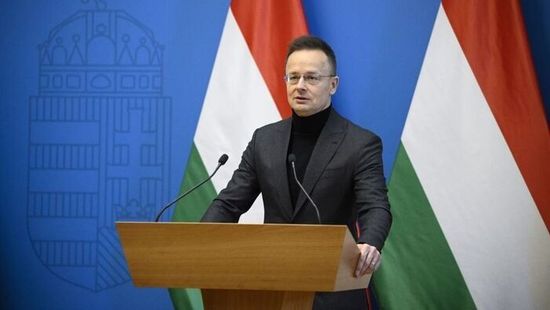
Hungary FM: Manhunts on the Streets of Ukraine, War Must Come to an End + Video
Ukrainian people do not want to die, yet day after day we see footage of forced conscription operations, Hungary's Foreign Minister said.
Ne maradjon le a Magyar Nemzet legjobb írásairól, olvassa őket minden nap!
- Iratkozzon fel hírlevelünkre
- Csatlakozzon hozzánk Facebookon és Twitteren
- Kövesse csatornáinkat Instagrammon, Videán, YouTube-on és RSS-en

Címoldalról ajánljuk
Tovább az összes cikkhez
PM Orban: Tisza Would Ban Cheap Russian Energy, Fidesz Announces Utility Price Freeze
Fidesz is the safe choice!

Massive Crowd Welcomes Viktor Orban At Szekszard Stop of Nationwide Tour + Video
Talks focused on regional development plans.

Hungary Has Not Changed, Tisza Suffers a Major Defeat in a Local By-Election + Video
Peter Magyar’s party has not grown any stronger since the summer of 2024, analyst Agoston Samuel Mraz said on The Hour of Truth.

Hungary FM: Manhunts on the Streets of Ukraine, War Must Come to an End + Video
Ukrainian people do not want to die, yet day after day we see footage of forced conscription operations, Hungary's Foreign Minister said.





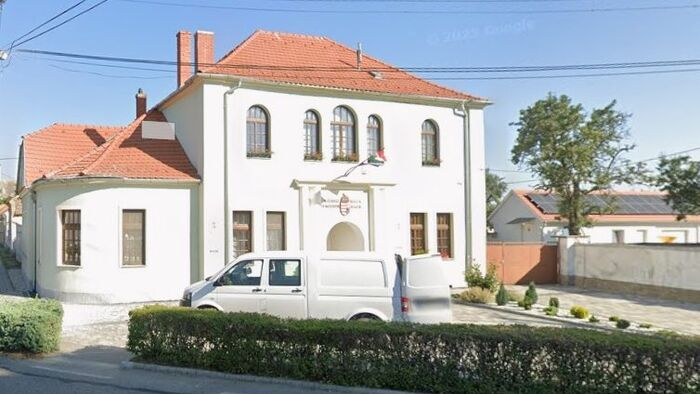



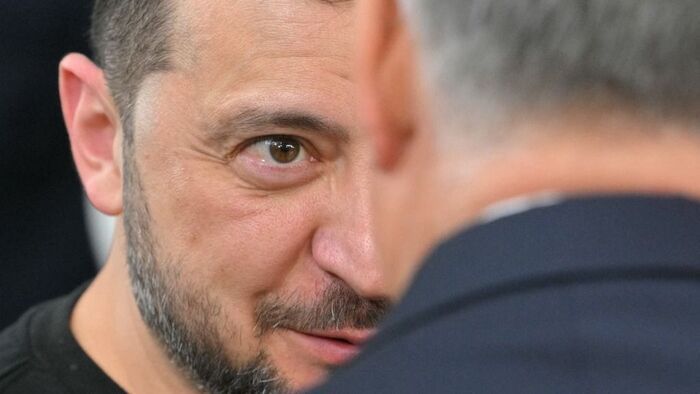

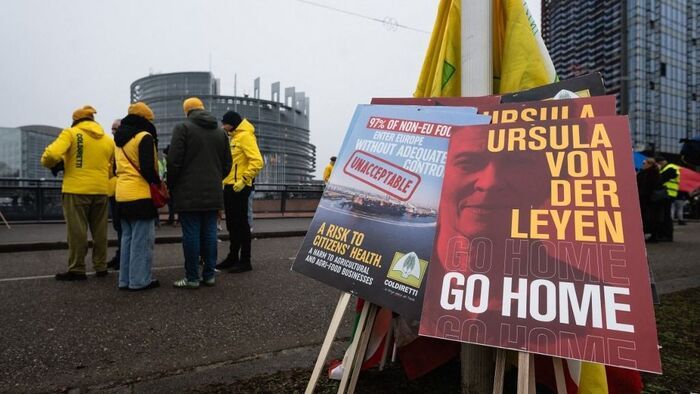


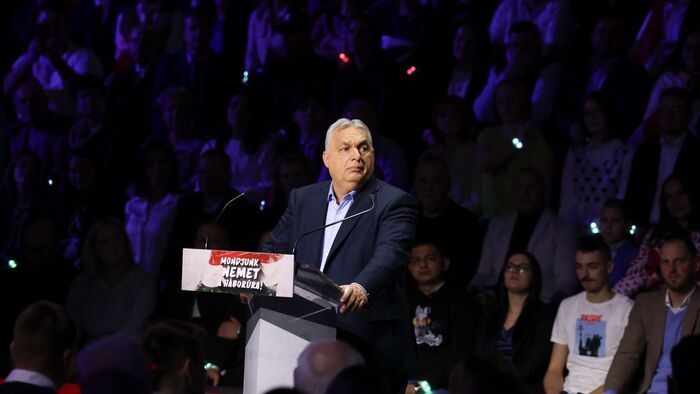


Szóljon hozzá!
Jelenleg csak a hozzászólások egy kis részét látja. Hozzászóláshoz és a további kommentek megtekintéséhez lépjen be, vagy regisztráljon!